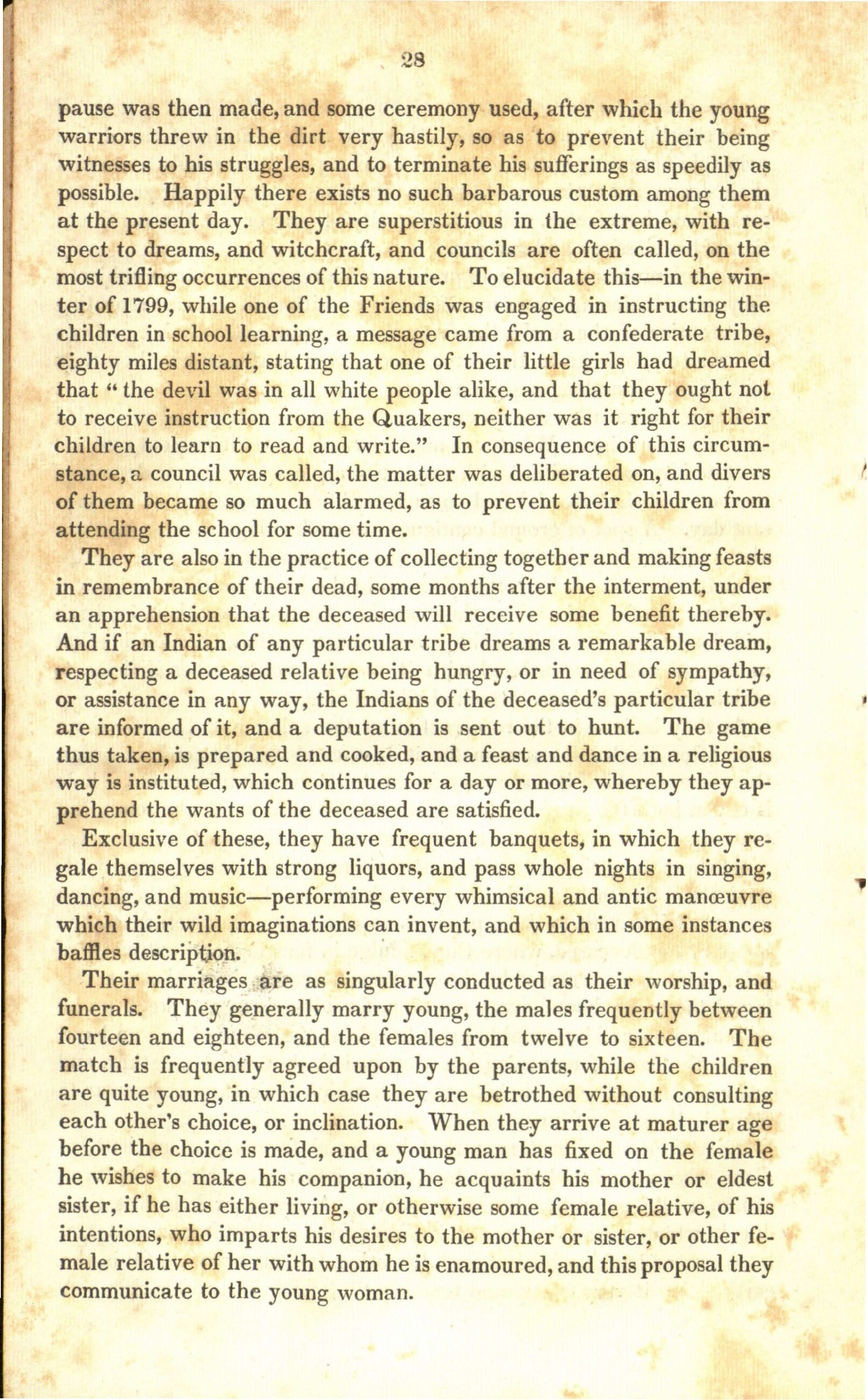pause was then made, and some ceremony
used, after which the young
warriors threw in the dirt very hastily, so as
to prevent their being
witnesses to his struggles, and to terminate his
sufferings as speedily as
possible. Happily there exists no such barbarous
custom among them
at the present day. They are superstitious in the
extreme, with re-
spect to dreams, and witchcraft, and councils are often
called, on the
most trifling occurrences of this nature. To elucidate this
- in the win-
ter of 1799, while one of the Friends was engaged in
instructing the
children in school learning, a message carne from a
confederate tribe,
eighty miles distant, stating that one of their little
girls had dreamed
that “the devil was in all white people alike, and that
they ought not
to receive instruction from the Quakers, neither was it
right for their
children to learn to read and write.” In consequence of
this circum-
stance, a council was called, the matter was deliberated on,
and divers
of them became so much alarmed, as to prevent their children
from
attending the school for some time.
They are also in the practice of collecting together and making feasts
in
remembrance of their dead, some months after the interment, under
an
apprehension that the deceased will receive some benefit thereby.
And if an
Indian of any particular tribe dreams a remarkable dream,
respecting a
deceased relative being hungry, or in need of sympathy,
or assistance in
any way, the Indians of the deceased's particular tribe
are informed of it,
and a deputation is sent out to hunt. The game
thus taken, is prepared and
cooked, and a feast and dance in a religious
way is instituted, which
continues for a day or more, whereby they ap-
prehend the wants of the
deceased are satisfied.
Exclusive of these, they have frequent banquets, in which they re-
gale
themselves with strong liquors, and pass whole nights in singing,
dancing,
and music - performing every whimsical and antic manœuvre
which their wild
imaginations can invent, and which in some instances
baffles
description.
Their marriages are as singularly conducted as their worship, and
funerals.
They generally marry young, the males frequently between
fourteen and
eighteen, and the females from twelve to sixteen. The
match is frequently
agreed upon by the parents, while the children
are quite young, in which
case they are betrothed without consulting
each other's choice, or
inclination. When they arrive at maturer age
before the choice is made, and
a young man has fixed on the female
he wishes to make his companion, he
acquaints his mother or eldest
sister, if he has either living, or
otherwise some female relative, of his
intentions, who imparts his desires
to the mother or sister, or other fe-
male relative of her with whom he is
enamoured, and this proposal they
communicate to the young woman.

